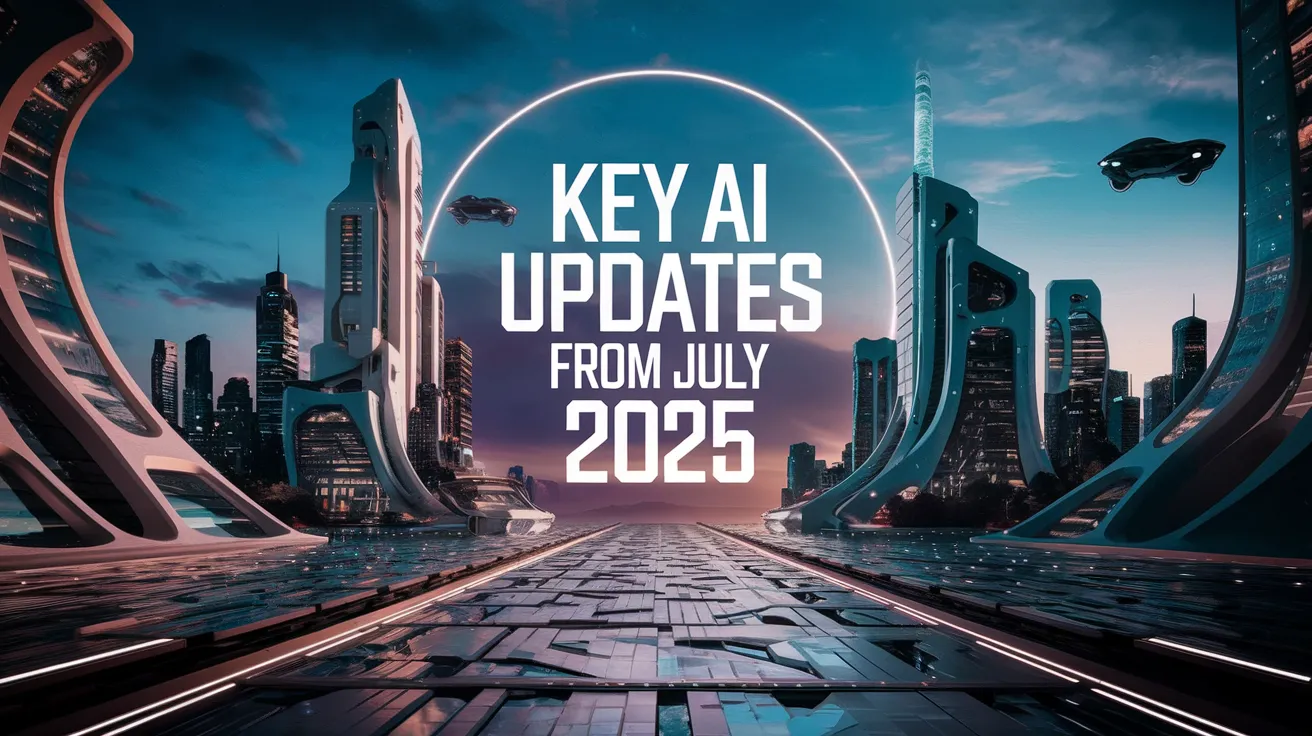Key AI Updates from July 2025

For over two decades, Google has invested significantly in machine learning and AI research, continuously developing tools and infrastructure aimed at enhancing everyday life. In July, the company focused on expanding access to AI technologies while ensuring their utility for a diverse audience. Here are the key announcements from that month:
AI Mode for Learning
As schools prepare to return, Google introduced AI Mode in Search, designed to aid students, parents, and educators. This powerful search experience now features tools like Canvas for planning, Search Live with video, and PDF uploads. These upgrades promise to enhance exploration and learning experiences significantly for users.
Enhanced Visual Search Features
AI Mode has also been integrated with Circle and Lens, enabling enhanced visual searches. Users can now ask follow-up questions about their visual searches directly within the applications. Additionally, gamers can receive tailored support through Circle to Search while playing mobile games, getting timely tips based on their screen activity.
NotebookLM Innovations
NotebookLM, an AI-powered research assistant utilized by millions, introduced features like video overviews and an upgraded Studio panel. Users can create different formats such as Mind Maps, Study Guides, and Video Overviews to organize their study materials more effectively.
Creative Tools in Google Photos
New capabilities have been introduced to Google Photos, allowing users to animate old pictures and apply creative transformations such as anime or 3D art through the Remix feature. A new “Create” tab makes these creative tools easily accessible within the app.
Veo 3 Expansion
The new video generation model, Veo 3, was expanded to over 150 countries, allowing users to convert photos into dynamic video clips seamlessly. The integration with Flow also introduced features for adding sound effects and generating speech for video content.
AI in Shopping
Google launched a personalized shopping experience allowing users to upload images to virtually try on clothing items. Upgraded price alerts are also introduced, enabling users to track deals based on their preferences.
Aeneas: AI for Historians
Aeneas, a new AI model from Google DeepMind, helps historians in interpreting and restoring ancient texts, leveraging similarities in ancient writings. This model aims to become proficient not only in Latin but also adaptable to other ancient languages.
AlphaEarth Foundations Model
The AlphaEarth Foundations AI model was introduced, designed to characterize the Earth’s terrain by integrating extensive observation data. This AI model aids researchers in addressing critical issues like food security and urban expansion.
Investment in Infrastructure and AI Skills
At the Pennsylvania Energy & Innovation Summit, Google announced a significant investment plan totaling $3 billion to modernize hydropower facilities, alongside initiatives for AI skills training and enhancing data center infrastructure across key regions.
Countering Cybersecurity Threats
Google revealed how an AI agent was employed to prevent a cybersecurity vulnerability, marking a potential industry first where AI directly intervened to thwart exploitation attempts.
These July updates reflect Google’s commitment to leveraging AI technology across various sectors, aiming for broad impact while addressing contemporary societal challenges.